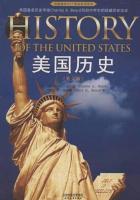
第28章 CONFLICT AND INDEPENDENCE(3)
The Quartering Act (1765).-The ministers were aware that the Stamp Act would rouse opposition in America-how great they could not conjecture.While the measure was being debated,a friend of General Wolfe,Colonel Barré,who knew America well,gave them an ominous warning in the Commons."Believe me-remember I this day told you so-"he exclaimed,"the same spirit of free-dom which actuated that people at first will accompany them still ...a people jealous of their liberties and who will vindicate them,if ever they should be vio-lated."The answer of the ministry to a prophecy of force was a threat of force.Preparations were accordingly made to dispatch a larger number of soldiers than usual to the colonies,and the ink was hardly dry on the Stamp Act when Parliament passed the Quartering Act ordering the colonists to provide accom-modations for the soldiers who were to enforce the new laws."We have the power to tax them,"said one of the ministry,"and we will tax them."
Colonial Resistance Forces Repeal
Popular Opposition.-The Stamp Act was greeted in America by an out-burst of denunciation.The merchants of the seaboard cities took the lead in making a dignified but unmistakable protest,agreeing not to import British goods while the hated law stood upon the books.Lawyers,some of them in-censed at the heavy taxes on their operations and others intimidated by patriotswho refused to permit them to use stamped papers,joined with the merchants.Aristocratic colonial Whigs,who had long grumbled at the administration of royal governors,protested against taxation without their consent,as the Whigs had done in old England.There were Tories,however,in the colonies as in England-many of them of the official class-who denounced the merchants,lawyers,and Whig aristocrats as "seditious,factious and republican."Yet the opposition to the Stamp Act and its accompanying measure,the Quartering Act,grew steadily all through the summer of 1765.
In a little while it was taken up in the streets and along the countryside.All through the North and in some of the Southern colonies,there sprang up,as if by magic,committees and societies pledged to resist the Stamp Act to the bitter end.These popular societies were known as Sons of Liberty and Daughters of Liberty:the f o r m e r i n c l u d i n g a r t i s a n s ,mechanics,and laborers;and the latter,patriotic women.Both groups were alike in that they had as yet taken little part in public affairs.Many artisans,as well as all the women,wereexcluded from the right to vote for colonial assemblymen.
Patrick Henry Making the "Caesar Had His Brutus"
Speech From an imaginative painting by P.F.RothermelWhile the merchants and Whig gentlemen confined their efforts chiefly to drafting well-phrased protests against British measures,the Sons of Liberty operated in the streets and chose rougher measures.They stirred up riots in Boston,New York,Philadelphia,and Charleston when attempts were made to sell the stamps.They sacked and burned the residences of high royal officers.They organized committees of inquisition who by threats and intimidation curtailed the sale of British goods and the use of stamped papers.In fact,the Sons of Liberty carried their operations to such excesses that many mild opponents of the stamp tax were frightened and drew back in astonishment at the forces they had unloosed.The Daughters of Liberty in a quieter way were making a very effective resistance to the sale of the hated goods by spurringon domestic industries,their own particular province being the manufacture of clothing,and devising substitutes for taxed foods.They helped to feed and clothe their families without buying British goods.
Legislative Action against the Stamp Act.-Leaders in the colonial assem-blies,accustomed to battle against British policies,supported the popu-lar protest.The Stamp Act was signed on March 22,1765.On May 30,the Virginia House of Burgesses passed a set of resolutions declaring that the General Assembly of the colony alone had the right to lay taxes upon the in-habitants and that attempts to impose them otherwise were "illegal,uncon-stitutional,and unjust."It was in support of these resolutions that Patrick Henry uttered the immortal challenge:"sar had his Brutus,Charles I his Cromwell,and George III...."Cries of "Treason"were calmly met by the ora-tor who finished:"George III may profit by their example.If that be treason,make the most of it."
The Stamp Act Congress.-The Massachusetts Assembly answered the call of Virginia by inviting the colonies to elect delegates to a Congress to be held in New York to discuss the situation.Nine colonies responded and sent repre-sentatives.The delegates,while professing the warmest affection for the king's person and government,firmly spread on record a series of resolutions that admitted of no double meaning.They declared that taxes could not be imposed without their consent,given through their respective colonial assemblies;that the Stamp Act showed a tendency to subvert their rights and liberties;that the recent trade acts were burdensome and grievous;and that the right to petition the king and Parliament was their heritage.They thereupon made "humble sup-plication"for the repeal of the Stamp Act.
The Stamp Act Congress was more than an assembly of protest.It marked the rise of a new agency of government to express the will of America.It was the germ of a government which in time was to supersede the government of George III in the colonies.It foreshadowed the Congress of the United States under the Constitution.It was a successful attempt at union."There ought to be no New England men,"declared Christopher Gadsden,in the Stamp Act Congress,"no New Yorkers known on the Continent,but all of us Americans."